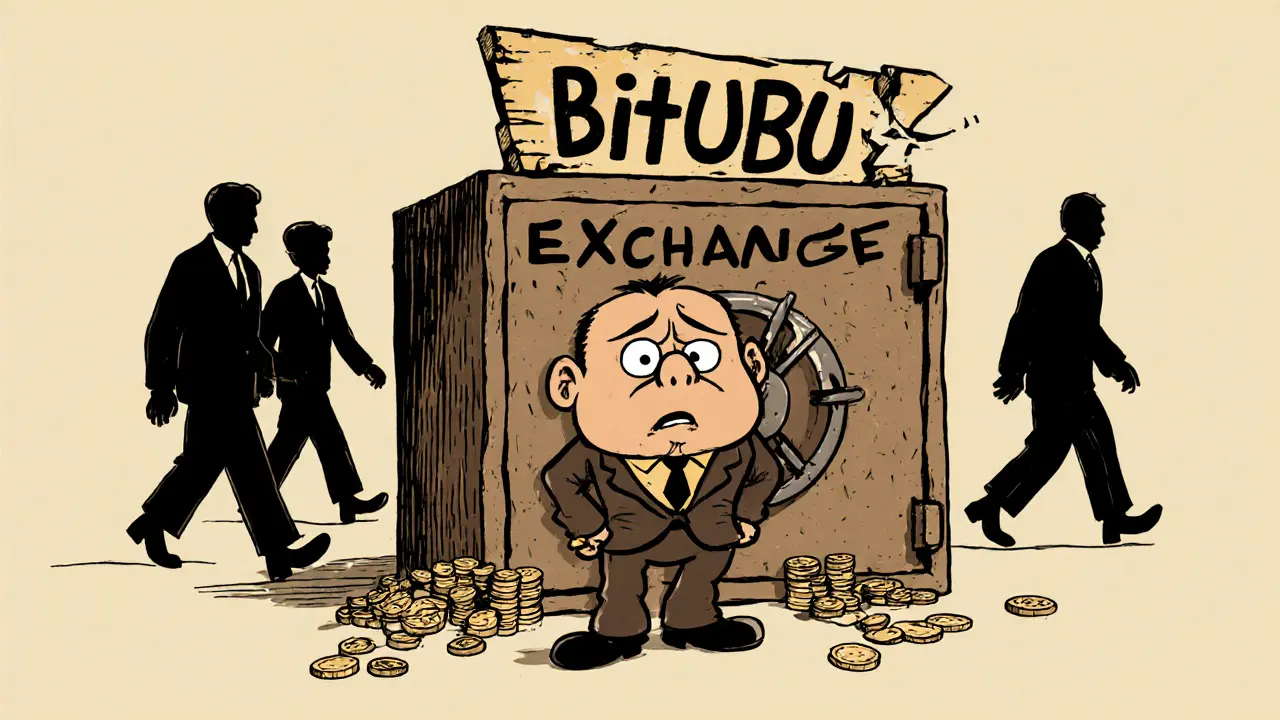
Crypto Exchange Safety Calculator
Calculate Your Risk with BitUBU
Based on BitUBU's unregulated status, lack of insurance, and security transparency, this calculator shows potential risks compared to regulated exchanges.
When you’re looking for a new crypto exchange, safety and reliability should come first. But what happens when the platform you’re considering doesn’t even tell you if it’s regulated? That’s the reality with BitUBU. It’s not a household name like Binance or Coinbase. It doesn’t show up in most top exchange lists. And yet, some traders still consider it - mostly because of its wide coin selection and low fees. But here’s the truth: BitUBU’s biggest selling point might also be its biggest red flag.
What Is BitUBU?
BitUBU is a centralized cryptocurrency exchange registered in Turkey. It claims to serve users in over 100 countries and offers trading for more than 100 cryptocurrencies, including Bitcoin, Ethereum, Solana, and smaller altcoins. On paper, it looks like a decent option: spot trading, derivatives, and even automated trading bots are available. But the moment you dig deeper, things get shaky.There’s no clear founding date. Some sources say 2019, others say 2020. The team behind it? Not named. The company’s registered capital? Not disclosed. That’s not normal. Even smaller exchanges usually share at least basic ownership details. BitUBU doesn’t. And that’s the first sign something’s off.
Trading Fees and Features
BitUBU charges a flat 0.20% fee for both maker and taker orders. That’s lower than some regional exchanges that charge 0.25% or more, but higher than top-tier platforms like Binance, which charges as low as 0.1% with BNB discounts. If you’re a high-volume trader, that 0.1% difference adds up fast.The exchange supports over 600 trading pairs and 300+ tokens - more than most small exchanges. That’s useful if you’re trading obscure coins that aren’t listed on bigger platforms. But here’s the catch: most of those pairs have almost no volume. You might find a token listed, but you won’t find buyers or sellers. Liquidity is thin, and that means slippage and failed orders.
BitUBU doesn’t offer margin trading, futures contracts, staking, or DeFi integration. Those aren’t luxury features anymore - they’re basic expectations. If you’re looking to earn interest on your crypto or hedge positions, BitUBU won’t help you. It’s stuck in 2020.
Security: The Biggest Concern
This is where BitUBU falls apart. It’s unregulated. According to WikiBit and multiple industry analysts, the exchange has no license from any financial authority. That means:- No legal protection if funds are lost
- No insurance for user deposits
- No requirement to store assets in cold wallets
- No public security audits
Major exchanges like Kraken and Coinbase publish their cold storage percentages, conduct regular third-party audits, and carry insurance policies. BitUBU doesn’t publish any of this. Not a single detail. You’re trusting them with your money based on a website and a promise. That’s not a strategy - it’s gambling.
Even the payment methods are a risk. BitUBU accepts bank transfers and credit cards, but there’s no public information about how those funds are handled. Are they segregated? Are they protected? No answers. If the exchange gets hacked or shuts down, you have zero recourse.
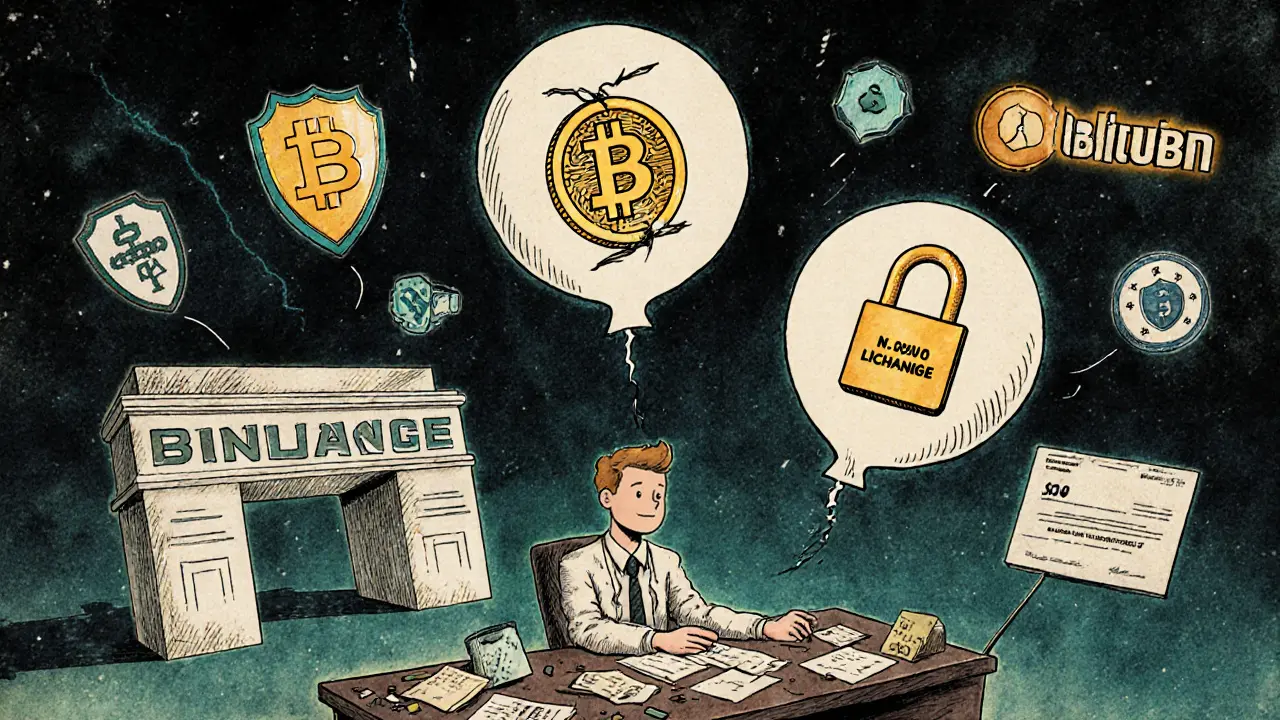
User Experience and Support
Signing up is straightforward: email, password, verify your email, then complete KYC with ID and proof of address. Sounds normal. But here’s the problem: no one talks about it.There are almost no reviews on Trustpilot, Reddit, or CoinCarp. The exchange has around 16,000 Twitter followers - tiny compared to Binance’s 10 million. That’s not a sign of growth. It’s a sign of obscurity.
Customer support claims to be 24/7 via email and live chat. But no user has publicly verified response times. No one has posted screenshots of resolved issues. That’s not silence - it’s avoidance. If the support team was reliable, users would be talking about it. They’re not.
The platform’s interface is basic. It works for simple spot trading, but there are no tutorials, no educational content, no guides for beginners. If you’re new to crypto, you’re on your own. No video walkthroughs. No FAQ section worth reading. Just a trading screen and a button to deposit.
How BitUBU Compares to the Competition
| Feature | BitUBU | Binance | Coinbase | Kraken |
|---|---|---|---|---|
| Regulated? | No | Yes (multiple jurisdictions) | Yes (US, EU, Canada) | Yes (US, EU, UK) |
| Trading Fees | 0.20% | 0.10% (with BNB) | 0.50% (standard) | 0.16% (maker) |
| Coins Available | 100+ | 500+ | 200+ | 250+ |
| Margin/Futures | No | Yes | Yes | Yes |
| Staking | No | Yes | Yes | Yes |
| Security Audits | Not disclosed | Publicly published | Publicly published | Publicly published |
| Trading Volume | Untracked | $20B+/day | $1B+/day | $500M+/day |
| User Reviews | Nearly none | Thousands | Thousands | Thousands |
BitUBU doesn’t just lag behind - it’s in a completely different league. The big exchanges have billions in daily volume, millions of users, and legal teams. BitUBU has a website and a promise. That’s not enough.
Who Should Avoid BitUBU?
If you’re any of these people, stay away:- Anyone storing more than a small amount of crypto
- Traders who want to use margin or futures
- People in regulated countries (US, UK, EU, Australia)
- Investors who want to earn interest on their holdings
- Anyone who values transparency and legal protection
Even if you’re just testing the waters with $50, the risk isn’t worth it. There are dozens of regulated, secure exchanges that offer the same coins with better support, lower fees, and real protection.
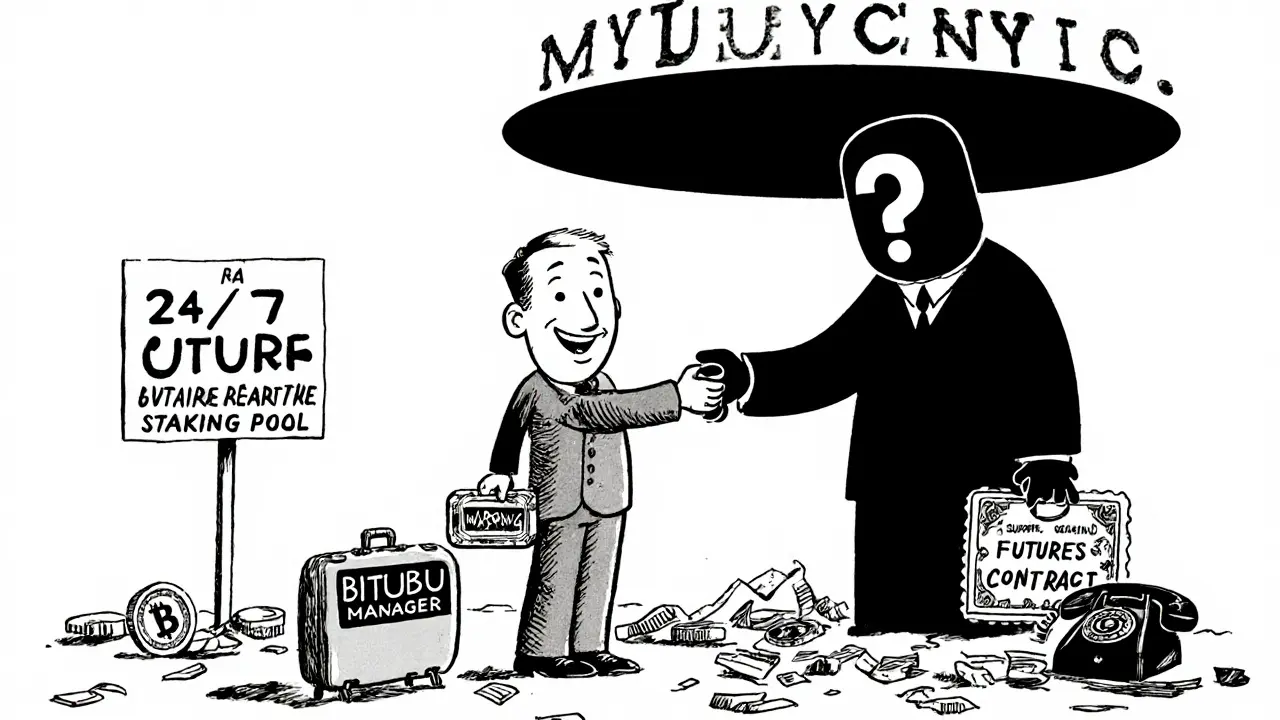
Who Might Consider It?
The only people who might find BitUBU useful are:- Traders in regions with no access to major exchanges
- Those looking for obscure altcoins not listed elsewhere
- People who understand the risks and treat it like a high-risk gambling site - not a bank
Even then, you should only deposit what you’re willing to lose. And never keep funds there longer than necessary.
The Bottom Line
BitUBU isn’t a scam. Not officially. But it’s not safe either. It operates in a gray zone - the kind where exchanges disappear overnight after a hack or a government crackdown. Turkey’s own crypto regulations are unstable, and BitUBU has chosen to stay outside any oversight. That’s a choice. And it’s a dangerous one.If you need a place to trade crypto, there are better options. Binance, Kraken, Coinbase, and even smaller regulated platforms like Bybit or KuCoin offer everything BitUBU claims to - and then some. With audits. With insurance. With real support.
BitUBU’s low fees and wide coin list look tempting. But when you’re trading crypto, the cheapest platform isn’t the best one. The safest one is.
Is BitUBU regulated?
No, BitUBU is not regulated by any financial authority. It operates as an unregulated exchange based in Turkey, which means there is no legal protection for users if funds are lost, hacked, or frozen. Regulated exchanges like Binance or Coinbase are licensed in multiple countries and must follow strict financial rules - BitUBU does not.
Can I trust BitUBU with my crypto?
You shouldn’t. BitUBU doesn’t disclose its security practices, cold storage rates, or insurance coverage. Major exchanges publish these details because they build trust. BitUBU doesn’t - and that’s a red flag. If you use it, treat it like a temporary trading tool, not a storage solution.
Does BitUBU offer staking or futures trading?
No. BitUBU only offers spot trading and basic derivatives. It does not support staking, margin trading, or futures contracts - features that are standard on almost every major exchange today. If you want to earn interest or hedge positions, you’ll need to use a different platform.
What are BitUBU’s trading fees?
BitUBU charges a flat 0.20% fee for both maker and taker orders. This is higher than Binance (0.10%) and Kraken (as low as 0.16%), but lower than some smaller exchanges that charge 0.25%-0.5%. However, low fees don’t matter if the platform is unsafe or lacks liquidity.
Why is BitUBU not tracked by CoinMarketCap?
CoinMarketCap only tracks exchanges with sufficient trading volume and transparency. BitUBU’s volume is classified as “untracked,” meaning it doesn’t meet their minimum standards for reliability or activity. This signals low user adoption and lack of institutional interest - two major warning signs.
How do I withdraw from BitUBU?
You can withdraw crypto to any external wallet by entering the address and confirming the transaction. But there’s no public information on withdrawal times, limits, or fees. Users report delays on other unregulated exchanges - and BitUBU has no verified user feedback to confirm whether withdrawals are reliable.
Is BitUBU available in the US or EU?
BitUBU claims to serve users in over 100 countries, but it does not comply with US or EU regulations. Users in these regions risk violating local laws by using the platform. Regulated exchanges like Coinbase or Kraken are the only legal options in these jurisdictions.
What to Do Next
If you’ve already signed up for BitUBU, don’t panic - but don’t leave your coins there either. Withdraw them to a secure wallet. If you’re still deciding, skip it. Use a regulated exchange instead. There are plenty of safe, reliable options with better features, lower fees, and real customer support.The crypto market is risky enough without adding unregulated platforms to the mix. You don’t need to gamble with your money. Choose safety. Choose transparency. Choose an exchange that has something to lose - not one that can vanish overnight.
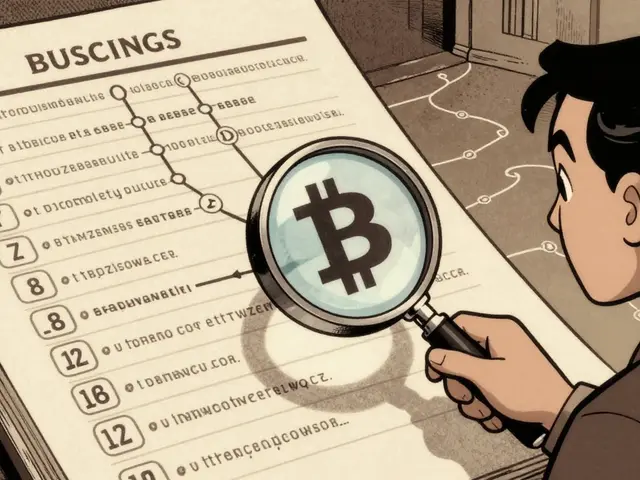
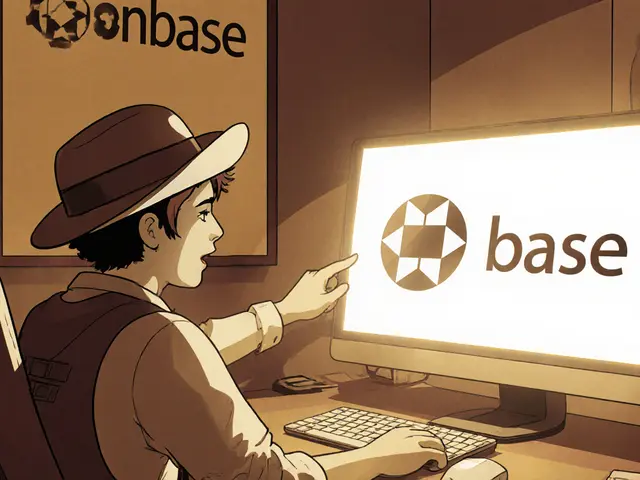
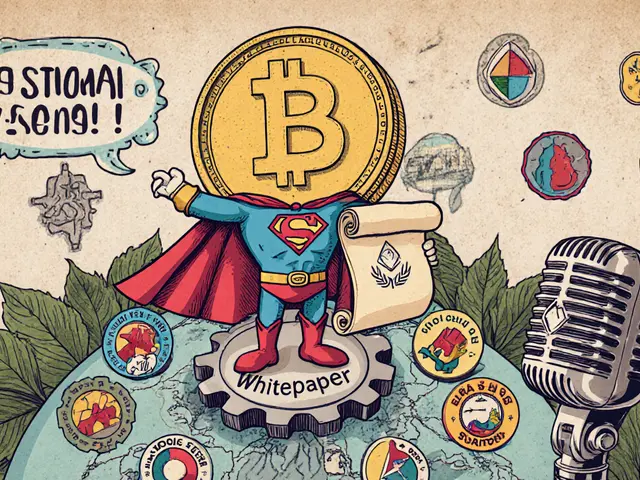

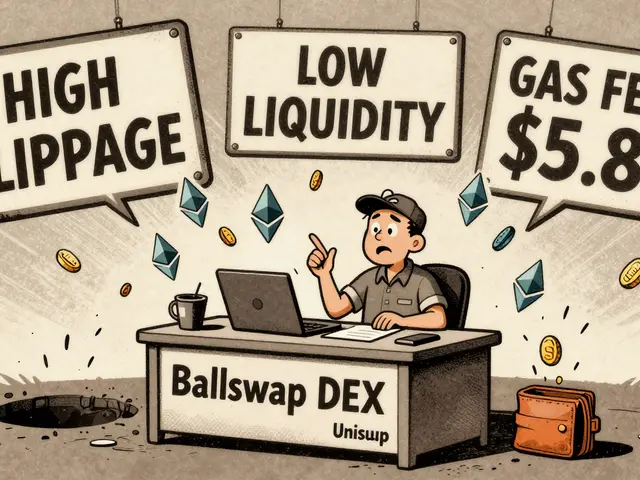
Comments (16)
garrett goggin
So BitUBU is basically the crypto equivalent of a sketchy gas station that sells expired energy drinks and has a guy in the back who might be laundering money? I love it. No regulation? Perfect. That means when they vanish tomorrow with your life savings, you can’t sue them. Just chalk it up to ‘market volatility’ and buy more Dogecoin. 🤡
Bill Henry
i dunno man i tried bitubu last month just to move some shiba inu and it actually worked? like the site was slow but i got my coins out. maybe its not perfect but its somethin. not everyone can use binance where i live
Jess Zafarris
Interesting. So the argument here is that if an exchange isn’t regulated, it’s automatically a death trap. But let’s be honest - most people don’t even know what regulation means. They just want low fees and access to weird coins. Maybe BitUBU fills a niche for people who don’t trust Big Finance or can’t access regulated platforms. It’s not ideal, but is it worse than the 100 other shadow exchanges nobody talks about?
jesani amit
Hey bro, i get your concerns but lets be real here - if you’re in india or nigeria or parts of africa, you dont have many options. binance is blocked, coinbase says no, kraken is too strict. bitubu is one of the few that actually lets you trade your local crypto without 12 forms of id. yeah its risky, but so is walking down the street without looking. you just gotta be smart. never keep more than you can afford to lose, and always withdraw to your own wallet. thats the real lesson here.
Peter Rossiter
Low fees thin liquidity no staking no futures no audits no regulation no reviews no support no transparency no nothing but a website and a prayer guess what its crypto
Mike Gransky
I’ve used dozens of exchanges over the years. The ones that don’t disclose security practices are the ones that end up in the news for all the wrong reasons. BitUBU’s silence isn’t neutral - it’s a red flag wrapped in a marketing page. If you’re serious about crypto, you don’t gamble on anonymity. You choose transparency. Even if it costs a little more.
Ella Davies
I checked their withdrawal times last week - took 47 hours for a small ETH transfer. No updates. No email. No chat response. I just sat there watching the blockchain confirm. That’s not customer service. That’s abandonment. I pulled everything out the next day.
Henry Lu
Wow. You actually wrote a 2000-word essay on why a crypto exchange is bad? Did you get paid by Binance? Or are you just one of those people who thinks safety means paying 0.5% fees to a corporation that sells your data? BitUBU doesn’t have a board of directors. It has people. Real ones. Who don’t need to answer to Wall Street. Maybe that’s the point.
Lori Holton
It is a matter of public record that unregulated financial intermediaries operating in jurisdictions with weak enforcement mechanisms present an elevated systemic risk to retail participants. The absence of Know Your Customer protocols, anti-money laundering compliance, and insurance coverage constitutes a material breach of fiduciary duty expectations. One does not simply ‘trust’ a website with digital assets. This is not a debate. It is a forensic accounting nightmare waiting to happen.
Bruce Murray
I used BitUBU for a few months just to trade some obscure memecoins. Didn’t lose anything. Didn’t gain anything. Just kind of… existed there. I think it’s fine if you treat it like a carnival game - put in $20, play, walk away. Just don’t think it’s a bank. It’s not. And that’s okay.
Teresa Duffy
If you’re new to crypto and you’re reading this, don’t let fear stop you from learning. But do let common sense guide you. BitUBU might be the only option for some - and that’s sad. But you can still be smart. Use small amounts. Withdraw fast. Learn how wallets work. You don’t need a big name to start - just caution.
Sean Pollock
The real scam isn't BitUBU... it's the entire fiat-backed financial system that tells you you need permission to own your money 🤡🔒. Regulation is just control dressed in a suit. BitUBU? It's the wild west. And guess what? The wild west had freedom. And freedom means risk. You want safety? Go work at a bank. You want crypto? Embrace the chaos. 💥
Carol Wyss
I know it’s scary to hear all this, but if you’re reading this and you’re nervous - you’re already thinking the right way. Just don’t put more in than you’re okay losing. And if you do use it, keep it short-term. I’ve used sketchy exchanges before - they’re like camping in a storm. You need the right gear, and you don’t stay long. 💙
Student Teacher
I’m teaching a crypto literacy class next week and I’m using this as a case study. The real lesson isn’t about BitUBU - it’s about how to evaluate any platform. Who’s behind it? What’s disclosed? What’s missing? The answers to those questions matter more than the interface or the fee chart.
Ninad Mulay
In India, we call this ‘jugaad’ - making do with what’s available. BitUBU ain’t fancy, but it works for people who can’t access the big ones. My cousin in rural UP traded his first 0.05 BTC there. He didn’t know what cold wallets were. But he learned. And now he’s on Kraken. BitUBU was his stepping stone. Sometimes the broken tool is the only one you’ve got.
Mike Calwell
its just another exchange. dont use it if you scared. its not that hard. just move your coins out if you dont trust it. chill